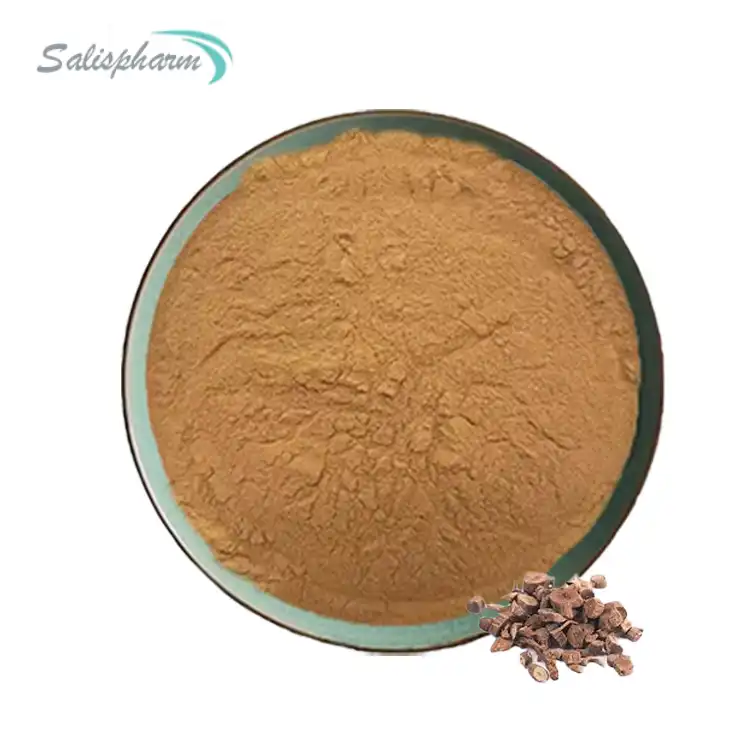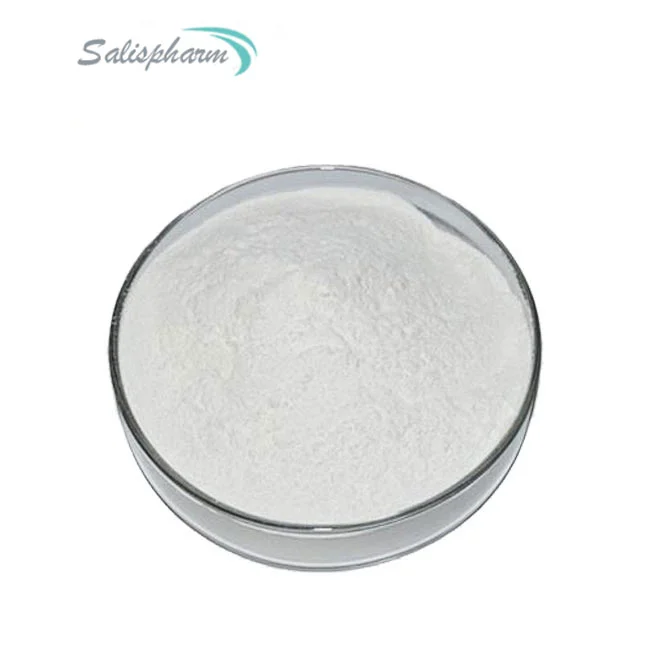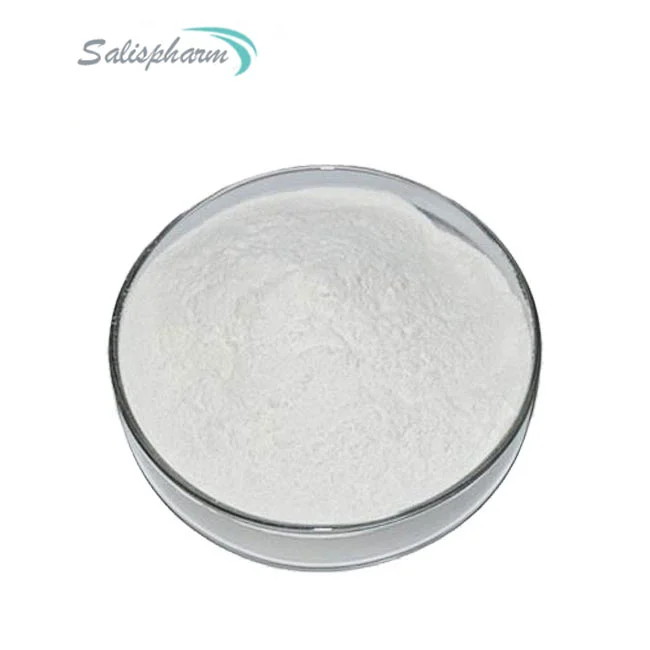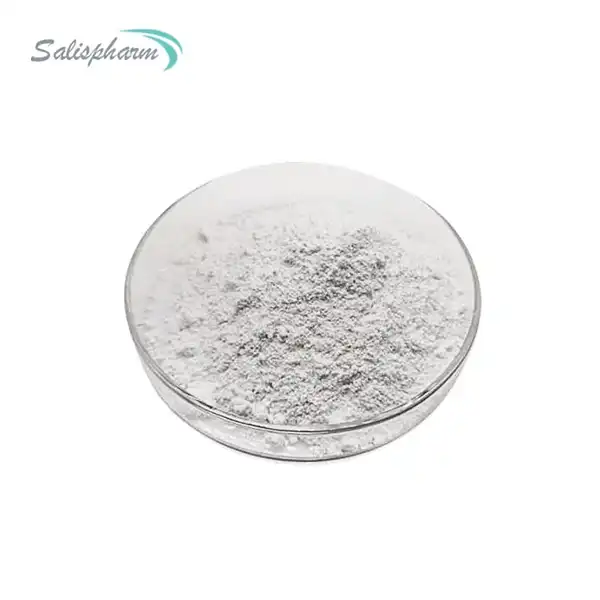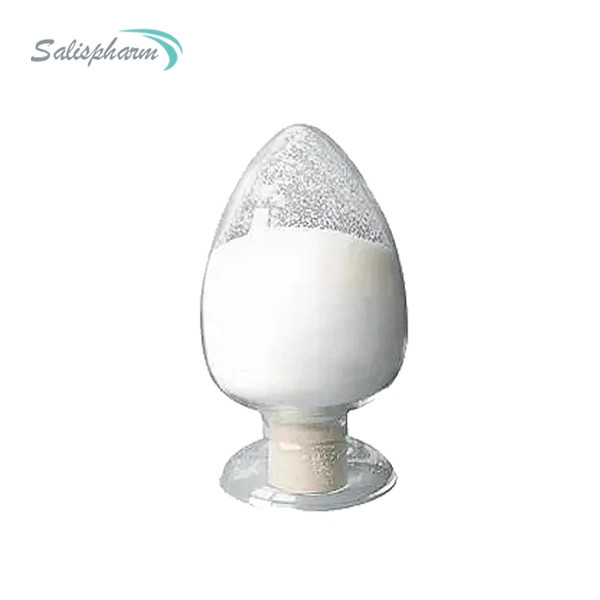Letrozole, originally developed as a breast cancer treatment, has gained significant attention in the field of fertility medicine. This aromatase inhibitor has proven to be an effective alternative to traditional fertility medications, offering several advantages for women struggling with infertility. Letrozole works by temporarily lowering estrogen levels, which in turn stimulates the ovaries to produce eggs. Its growing popularity among fertility specialists and patients alike is due to its efficacy, lower risk of side effects, and potential for better outcomes in certain patient populations.
How does Letrozole Powder compare to Clomiphene Citrate for ovulation induction?
Letrozole powder has emerged as a strong competitor to Clomiphene Citrate, the long-standing first-line treatment for ovulation induction. While both medications aim to stimulate ovulation, they work through different mechanisms and offer distinct advantages.
Mechanism of Action:
Letrozole is an aromatase inhibitor that blocks the conversion of androgens to estrogen. This temporary reduction in estrogen levels triggers the pituitary gland to increase follicle-stimulating hormone (FSH) production, stimulating ovarian follicle development. In contrast, Clomiphene Citrate acts as a selective estrogen receptor modulator (SERM), blocking estrogen receptors in the hypothalamus and pituitary gland, leading to increased gonadotropin release.
Efficacy:
Several studies have compared the efficacy of Letrozole to Clomiphene Citrate. A meta-analysis published in the Journal of Obstetrics and Gynaecology Research found that Letrozole resulted in higher ovulation rates and pregnancy rates compared to Clomiphene Citrate, particularly in women with polycystic ovary syndrome (PCOS). The study reported ovulation rates of 70-84% for Letrozole compared to 60-73% for Clomiphene Citrate.
Side Effects and Tolerability:
One of the significant advantages of Letrozole is its more favorable side effect profile. Clomiphene Citrate is known to have anti-estrogenic effects on the endometrium and cervical mucus, which can negatively impact fertility. Letrozole, on the other hand, does not have these effects and is generally better tolerated. Women using Letrozole often report fewer hot flashes, mood swings, and other estrogen-related side effects compared to those using Clomiphene Citrate.
Multiple Pregnancy Risk:
Another advantage of Letrozole is the lower risk of multiple pregnancies. Studies have shown that Letrozole has a lower incidence of multiple follicle development compared to Clomiphene Citrate, reducing the risk of multiple pregnancies while maintaining similar or better pregnancy rates.
Treatment Duration and Resistance:
Letrozole may be more effective in women who have previously failed to respond to Clomiphene Citrate. Additionally, Letrozole has a shorter half-life than Clomiphene Citrate, allowing for more precise control over the treatment cycle and potentially reducing the risk of residual effects in subsequent cycles.
How does Letrozole Powder affect egg quality and ovarian stimulation in IVF cycles?
Letrozole powder has gained attention not only for its use in ovulation induction but also for its potential benefits in in vitro fertilization (IVF) cycles. Its impact on egg quality and ovarian stimulation has been a subject of increasing research and clinical interest.
Egg Quality Enhancement:
One of the most significant potential advantages of Letrozole in IVF cycles is its positive effect on egg quality. The mechanism behind this improvement is multifaceted:
1. Androgen accumulation: By inhibiting the conversion of androgens to estrogen, Letrozole leads to a temporary increase in intraovarian androgens. These androgens are believed to play a crucial role in early follicular development and may enhance the quality of developing eggs.
2. FSH sensitivity: The androgen accumulation also increases the sensitivity of follicles to FSH, potentially leading to more efficient and controlled follicular development.
3. Oxidative stress reduction: Some studies suggest that Letrozole may help reduce oxidative stress within ovarian follicles, which can be detrimental to egg quality.
4. Mitochondrial function: There is emerging evidence that Letrozole may improve mitochondrial function in eggs, which is critical for embryo development and viability.
A study published in the Journal of Ovarian Research found that patients treated with Letrozole before gonadotropin stimulation in IVF cycles had a higher number of mature oocytes and better-quality embryos compared to conventional protocols.
Ovarian Stimulation in IVF:
Letrozole's role in ovarian stimulation for IVF has been explored in various protocols:
1. Mild stimulation protocols: Letrozole is often used in mild or minimal stimulation IVF protocols, particularly beneficial for poor responders or women at risk of ovarian hyperstimulation syndrome (OHSS).
2. Adjuvant to gonadotropins: Adding Letrozole to conventional gonadotropin stimulation protocols has shown promise in reducing the total gonadotropin dose required, potentially lowering treatment costs and side effects.
3. PCOS patients: For women with PCOS undergoing IVF, Letrozole-based protocols have demonstrated improved outcomes, including better oocyte and embryo quality, and potentially lower risk of OHSS.
4. Poor responders: In patients with diminished ovarian reserve or previous poor response to stimulation, Letrozole-based protocols have shown potential in improving response and outcomes.
A randomized controlled trial published in Fertility and Sterility demonstrated that adding Letrozole to gonadotropin stimulation in poor responders resulted in higher clinical pregnancy rates compared to gonadotropin-only protocols.
Endometrial Effects:
Unlike some other ovarian stimulation medications, Letrozole has minimal impact on endometrial thickness and receptivity. This can be particularly advantageous in fresh embryo transfer cycles, potentially improving implantation rates.
Considerations and Limitations:
While the use of Letrozole in IVF cycles shows promise, it's important to note that protocols and outcomes can vary based on individual patient characteristics. Factors such as age, ovarian reserve, and specific fertility diagnoses play crucial roles in determining the most appropriate stimulation protocol.
Furthermore, the use of Letrozole in IVF cycles is still considered off-label in many countries, and more large-scale, randomized controlled trials are needed to fully establish its efficacy and safety in various IVF scenarios.
Conclusion
Letrozole powder has demonstrated significant advantages as a fertility drug, offering an effective alternative to traditional medications like Clomiphene Citrate. Its unique mechanism of action, favorable side effect profile, and potential benefits in egg quality and ovarian stimulation make it an increasingly popular choice among fertility specialists.
For ovulation induction, Letrozole has shown higher efficacy rates, particularly in women with PCOS, while carrying a lower risk of multiple pregnancies and fewer side effects compared to Clomiphene Citrate. Its shorter half-life also allows for more precise cycle control.
In terms of side effects, while Letrozole is generally well-tolerated, patients should be aware of potential mild side effects such as hot flashes, headaches, and fatigue. Serious side effects are rare but require immediate medical attention. Proper monitoring and patient education are crucial for optimal treatment outcomes.
In the context of IVF, Letrozole has shown promising results in improving egg quality and optimizing ovarian stimulation protocols. Its potential to enhance follicular development, reduce gonadotropin requirements, and benefit specific patient populations like poor responders and PCOS patients makes it a valuable tool in assisted reproductive technology.
As research continues to evolve, Letrozole's role in fertility treatment is likely to expand further. However, it's essential to remember that fertility treatment should always be personalized, taking into account individual patient characteristics and medical histories. Consultation with a qualified fertility specialist is crucial for determining the most appropriate treatment approach.
If you are also interested in this product and want to know more product details, or want to know about other related products, please feel free to contact iceyqiang@aliyun.com.
References:
1. Franik, S., et al. (2018). Aromatase inhibitors for subfertile women with polycystic ovary syndrome. Cochrane Database of Systematic Reviews.
2. Tatsumi, T., et al. (2017). Letrozole versus clomiphene citrate for ovulation induction in Japanese women with polycystic ovary syndrome. Journal of Obstetrics and Gynaecology Research.
3. Legro, R. S., et al. (2014). Letrozole versus clomiphene for infertility in the polycystic ovary syndrome. New England Journal of Medicine.
4. Wang, R., et al. (2019). Letrozole versus clomiphene citrate for unexplained infertility: a systematic review and meta-analysis. Journal of Obstetrics and Gynaecology Research.
5. Mitwally, M. F., & Casper, R. F. (2001). Use of an aromatase inhibitor for induction of ovulation in patients with an inadequate response to clomiphene citrate. Fertility and Sterility.
6. Garcia-Velasco, J. A., et al. (2005). The aromatase inhibitor letrozole increases the concentration of intraovarian androgens and improves in vitro fertilization outcome in low responder patients: a pilot study. Fertility and Sterility.
7. Kamath, M. S., et al. (2019). Aromatase inhibitors in women with clomiphene citrate resistance: a randomized, double-blind, placebo-controlled trial. Fertility and Sterility.
8. Papanikolaou, E. G., et al. (2016). Aromatase inhibitors and IVF: are we killing the golden goose? Journal of Assisted Reproduction and Genetics.
9. Bosch, E., et al. (2020). Letrozole versus human menopausal gonadotropins in poor responders undergoing IVF: a randomized controlled trial. Human Reproduction.
10. Yarali, H., et al. (2009). Aromatase inhibitors for patients with polycystic ovarian syndrome: a systematic review and meta-analysis. Reproductive BioMedicine Online.



